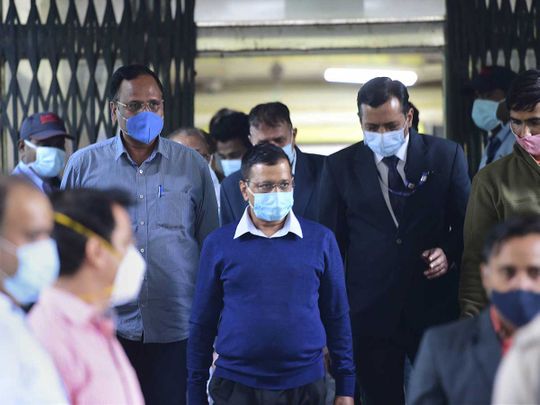
Arvind Kejriwal, Delhi’s Chief Minister, learnt a hard lesson this week. When your politics is centred on expediency, and not on principle, you will get singed.
That is exactly what happened when the BJP government at the centre in India brought in a law that effectively renders the Delhi government powerless and recognises the centre’s appointed Lieutenant Governor or LG as the real authority.
Based strictly on principle and merit, this is a move that goes against the spirit of federalism in India. It completely undermines an elected government in the national capital, making a mockery of elections.
Arvind Kejriwal termed the development as a “sad day for Indian democracy” and his party, the Aam Aadmi Party (AAP) is planning to approach the Supreme Court. The new law recognises the LG as the real government of Delhi and means that the Chief Minister will now have to take the LG’s approval before making any executive decision.
Now rewind to August 5, 2019. On that day, India’s parliament, in a matter of hours, stripped Jammu and Kashmir of its special status and downgraded the state into two union territories, with power vested in an LG, much like what has been done to Delhi now.
Downgrading states
In the past, union territories have become states but states had never been dismantled this way. The people of Jammu and Kashmir were not consulted at all. As several legal experts pointed out, including Constitutional expert and former Secretary General of the Lok Sabha (2005-10) P. D. Thankappan Achary, Article 3 of the Constitution says that for the formation of new states and alternations of boundaries, the President must seek the views of the state legislature.
At the time, Jammu and Kashmir was under President’s rule, so there was no assembly. In a highly questionable legal move, the centre said the Governor represents that state government. The actual elected leaders of the state were jailed (some for up to and over a year), thousands of troops were flown in to ensure there was no protest; phone lines were completely cut off for several weeks (people couldn’t call ambulances if they needed one). The way in which this entire exercise was carried out was a mockery of democracy.
What did Arvind Kejriwal do at the time? He welcomed the centre’s moves on J & K and not once did he protest about the way in which the bills were passed and the snapping of phone links and mass arrests of political leaders and workers. At the time, Kejriwal tweeted “we support the government on its decisions on Jammu and Kashmir. We hope this will bring peace and development in the state”.
Let us leave aside the arguments on the merits of Article 370 and what it did and did not do. Here is a man, who has spent most of his political capital fighting for the statehood of Delhi. How did the AAP justify supporting the dismemberment of Jammu and Kashmir and downgrading it to a Union Territory?
Exposing the hypocrisy
AAP supporters on social media jumped down the throats of those who pointed out this hypocrisy, claiming Kejriwal only supported the government on Article 370. But the AAP supported the Jammu and Kashmir bill in parliament, which ended both Article 370 and statehood. And then there is Kejriwal’s tweet. It clearly said “ we support ... the decisions (plural) on Jammu and Kashmir”.
What is obvious is that what was done to Jammu and Kashmir, and now to Delhi, completely abuses federalism and is a travesty. The August 5, 2019 decisions set a dangerous precedent but many political parties in the country, with the exception of the DMK and the Left, did not have the moral and political courage to oppose it strongly because of the “nationalist” argument. What has happened in Delhi now should also serve as a warning to other regional parties, that they could be next.
But there is another lesson, this one for politicians like Arvind Kejriwal: politics based on some principles matters. Everything can’t be about political expediency at the moment.








